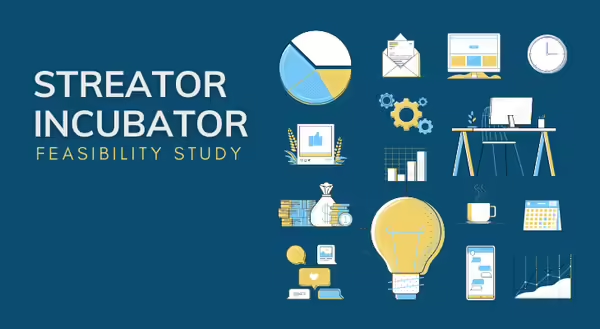
Streator is a forward thinking city. Successful incubation programs operate like the businesses they help launch, whether they’re located in rural areas or more urban areas. When budgets are tight, best practice programs identify efficiencies to conserve scarce resources. But they also develop new programs and implement innovation ideas that can bring additional revenue.
During the spring of 2019 the city contracted with Illinois Business Consulting, University of Illinois EDA University Center, and University of Illinois Extension to provide a study on the economic impact of investing in resources for local business. The economic impact study was able to show not just direct revenue gains, but the total economic impact of creating one new business based on previous data. As we navigate this post COVID world it is vital that communities consider how to jump-start their local economies.
The analysis and evaluation (with recommendations) of the current incubator and its operations were conducted through key informant interviews of tenants, community members, and similar incubator sites in Illinois and surrounding states. Additional insight was gathered through an online survey distributed through organizations in both Livingston and LaSalle Counties to assess public opinion of the facility and operations.
Additional programming insight was garnered through benchmarking current operations against other community incubators. Best Practices in Rural Business Incubation, a 2013 publication from the International Business Innovation Association, provided insights across many different domains of practice such as governance, staffing, selecting clients, serving clients, marketing and public relations, incubator finances, graduation, measuring impact, and environmental impacts. Many of the Streator Incubator operations were reviewed through this lens.
The product and end goal of a business incubator is to help local entrepreneurs build their business, graduate from the incubator, and successfully integrate into the local economy. The study highlights new ways this incubator can offer benefits to startup business owners in the form of equipment, office and manufacturing space, advertising, and public promotion. The added value is to gather tenants and resources to create a synergy of ideas and a shared cost structure to allow tenants access to these services at a lower price.
Apart from tenants, the Streator Incubator can provide community benefit by offering services to the community, including training, educational services, and community events. This will help create an atmosphere of entrepreneurship, create interest in the Streator Incubator and help attract tenants.
Completion of this planning process created a great opportunity for learning. Members of the Streator Incubator Board and others discovered a great deal of practical ideas for enhancing incubator services that will strengthen new business startups in both Livingston and LaSalle Counties. Most of all this work helps to ensure that that the information needed to pursue both federal and state grant funding opportunities is in hand.
MEET THE AUTHOR
As a community and economic development educator, Kathie Brown worked with community leaders, government officials, volunteer groups, small business owners, and others to help communities become stronger and more economically viable. She focused on leadership and organizational development; local government education and relations; economic development strategies; participatory community planning/visioning processes; group process facilitation; collaboration and partnership building; public issue education; and understanding, using and developing data.
Prior to retirement in 2021, Brown worked with organizations and local governments to help them: (1) analyze and understand their needs, (2) identify alternative courses of action, (3) make informed decisions, (4) plan for the future and (5) evaluate their development efforts.
Kathie worked for Extension for almost 40 years, contributing to programs related to community health, digital literacy, STEAM education, and more.

